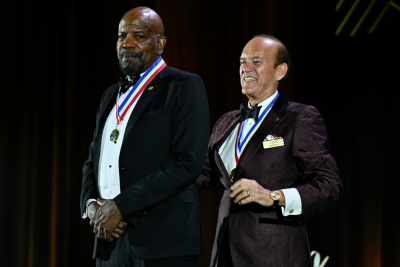 Warmest congratulations to Professor Cato Laurencin on his remarkable achievement of being inducted into the prestigious Plastics Hall of Fame. This honor recognizes his pioneering contributions to the field of regenerative engineering, where he has revolutionized the use of polymeric materials in developing cutting-edge medical devices, biologics, and pharmaceuticals. Prof. Laurencin’s groundbreaking work has transcended traditional boundaries, improving the lives of countless individuals worldwide.
Warmest congratulations to Professor Cato Laurencin on his remarkable achievement of being inducted into the prestigious Plastics Hall of Fame. This honor recognizes his pioneering contributions to the field of regenerative engineering, where he has revolutionized the use of polymeric materials in developing cutting-edge medical devices, biologics, and pharmaceuticals. Prof. Laurencin’s groundbreaking work has transcended traditional boundaries, improving the lives of countless individuals worldwide.
Prof. Laurencin’s remarkable achievements have garnered significant acclaim, including the prestigious National Institute of Health Director’s Pioneer Research Grant Award and the National Science Foundation’s Emerging Frontiers in Research and Innovation Award. His innovative use of polymeric materials for tissue regeneration, drug delivery systems, and other medical applications has established him as a leader in the field. Prof. Laurencin is also the first engineer-scientist-surgeon to be elected to the National Academy of Sciences, the National Academy of Engineering, the National Academy of Medicine, and the National Academy of Inventors.
Read more on UConn Today.
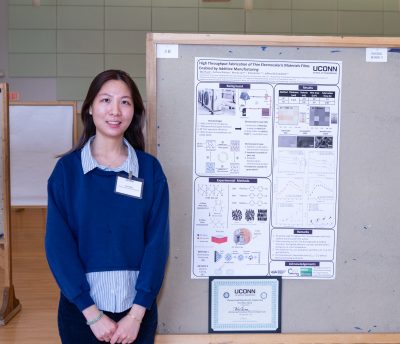
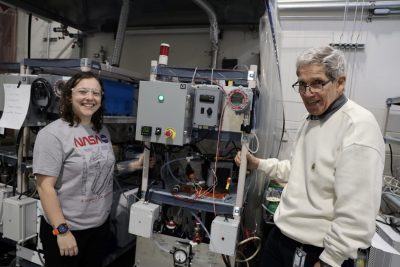 Warmest congratulations to Alanna Gado for being awarded the Graduate Research Fellowship sponsored by the
Warmest congratulations to Alanna Gado for being awarded the Graduate Research Fellowship sponsored by the 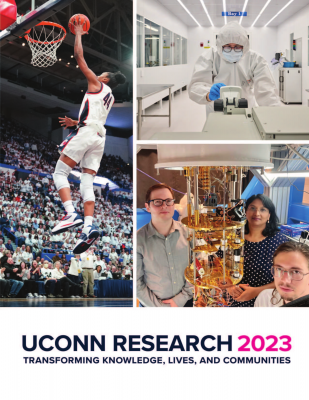 In the latest 2023 UConn Research Annual Report, the exceptional contributions of four distinguished faculty members take center stage. President Radenka Maric, along with esteemed professors Kelly Burke, Xiao-Dong Zhou, and Cato Laurencin, have been featured for their groundbreaking work spanning the realms of sustainability, energy, health, medicine, and community development. The report underscores the significant impact of their research, showcasing their commitment to advancing knowledge and addressing critical issues that resonate across diverse fields.
In the latest 2023 UConn Research Annual Report, the exceptional contributions of four distinguished faculty members take center stage. President Radenka Maric, along with esteemed professors Kelly Burke, Xiao-Dong Zhou, and Cato Laurencin, have been featured for their groundbreaking work spanning the realms of sustainability, energy, health, medicine, and community development. The report underscores the significant impact of their research, showcasing their commitment to advancing knowledge and addressing critical issues that resonate across diverse fields.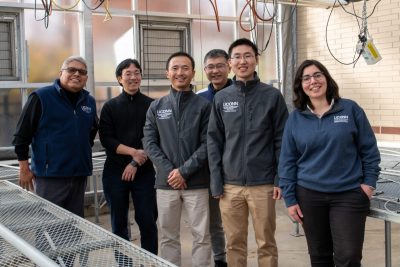
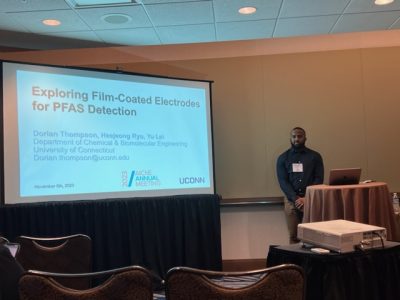 Warmest congratulations to Dorian Thompson for an outstanding achievement—securing the 3rd place in the Graduate Student Competition in Sensors at the AIChE Annual Meeting! Dorian works on PFAS detection under the advising of Professor Yu Lei.
Warmest congratulations to Dorian Thompson for an outstanding achievement—securing the 3rd place in the Graduate Student Competition in Sensors at the AIChE Annual Meeting! Dorian works on PFAS detection under the advising of Professor Yu Lei.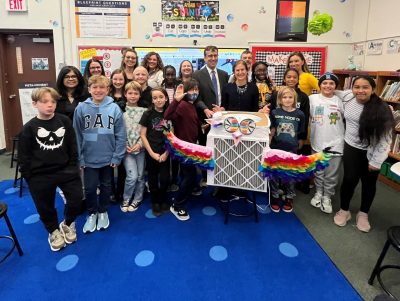
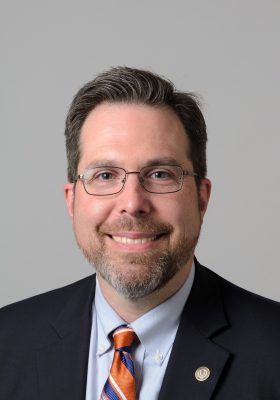 A newly awarded $2.5M
A newly awarded $2.5M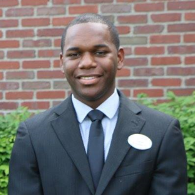 Laron Burrows, making remarkable strides in environmental innovation. His groundbreaking work focuses on cleaning up one of the world’s dirtiest chemical processes, ammonia production. Along with Prof.
Laron Burrows, making remarkable strides in environmental innovation. His groundbreaking work focuses on cleaning up one of the world’s dirtiest chemical processes, ammonia production. Along with Prof.